A Year in Books: Faculty Elevated New Ideas on a Range of Critical Issues

Yale Law School’s renowned faculty published an extraordinary collection of books and scholarship in 2021. These books sparked important discussions and will serve as foundational texts in a variety of scholarly fields. This year, new books explored a wide range of fascinating topics from the humanity of war to the property laws and institutions of colonial America. Through these works, faculty also examined five decades of the war of cancer, detailed the untold history of police violence, and produced a vivid narrative of the biggest constitutional questions early Americans confronted. Here’s a look back at the year in books published by YLS faculty and lecturers in law.
Professor Anne L. Alstott, Co-Editor, Politics, Policy, and Public Options
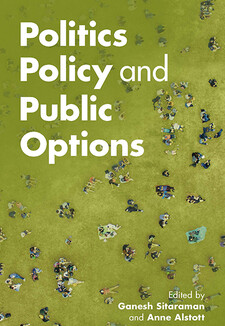
In their book Politics, Policy, and Public Options, Professor Anne Alstott ’87 and co-editor Ganesh Sitaraman assemble a collection of scholars from across disciplines to explore the theory of the public option. Public options are a longstanding feature of American life across sectors — not just in health care, although many people will associate the term with that context. Public options abound when the government provides a service that co-exist with private alternatives, and examples range from libraries to swimming pools to the postal service. The new book is the first interdisciplinary collection to assess public options as a single category and explores case studies to show how public options can be a balancing influence to the longstanding trend toward privatization and subsidies of services.
Professor Akhil Reed Amar, The Words that Made Us: America’s Constitutional Conversation, 1760–1840
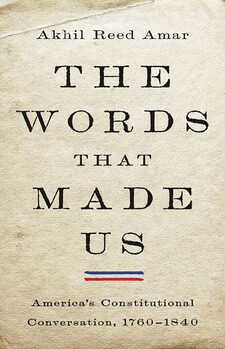
In his new history of the Constitution, The Words That Made Us: America’s Constitutional Conversation, 1760–1840, Professor Akhil Reed Amar ’84 combines historical and legal perspectives to bring together “between a single set of [book] covers the main constitutional episodes of the fateful era in which America became America.” By combining the two approaches, Amar aims to solve what he sees as a fundamental problem in constitutional literacy — previous works on this subject are by historians who are not well versed in the law, and legal scholars who don’t pay enough attention to history in shaping modern constitutional rhetoric. Professor Amar’s latest book produces a wide-angled, multigenerational narrative that seeks both to understand the past and to evaluate it using proper historical and legal tools of analysis.
Professor Daniel C. Esty and E. Donald Elliott, Advanced Introduction to U.S. Environmental Law
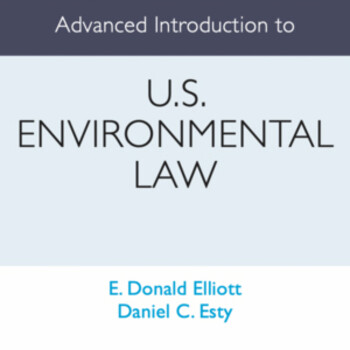
Geared toward environmental lawyers, business executives, NGO leaders, policymakers, and think tank analysts who work on environmental issues, Advanced Introduction to U.S. Environmental Law covers major topics of environmental law including the Clean Air Act, climate change, the Safe Drinking Water Act, hazardous waste, chemical regulation, and occupational safety and health. Professor Daniel Esty ’86 and E. Donald Elliott ’74, both leading environmental law scholars, explore how federal environmental law is made and how it interacts with state law, highlighting the important role that administrative agencies play in the creation, implementation, and enforcement of U.S. environmental law.
Professor Abbe R. Gluck, Co-Editor, A New Deal for Cancer: Lessons from a 50 Year War
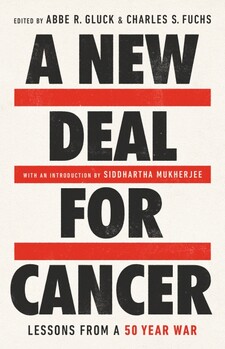
A groundbreaking book co-edited by Abbe R. Gluck ’00, Alfred M. Rankin Professor of Law and Faculty Director of the Solomon Center for Health Law and Policy, and Dr. Charles Fuchs, former Director of the Yale Cancer Center and Physician-in-Chief of Smilow Cancer Hospital, offers an unprecedented look into the politics, policy, regulation, and science of cancer. The book, A New Deal for Cancer: Lessons from a 50 Year War marks the 50th anniversary of the National Cancer Act of 1971 — widely seen as the start of the “war on cancer.” The book builds off a 2018 conference held at Yale Law School, “The Policy, Politics & Law of Cancer,” co-sponsored by the Solomon Center and the Yale Cancer Center — the largest cancer conference in Connecticut history.
Clinical Lecturer in Law Linda Greenhouse, Justice on the Brink: The Death of Ruth Bader Ginsburg, the Rise of Amy Coney Barrett, and Twelve Months that Transformed the Supreme Court
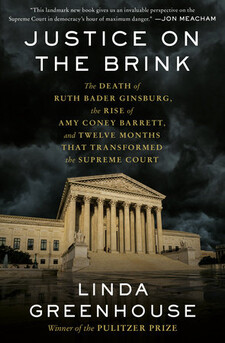
Veteran Supreme Court reporter and Clinical Lecturer in Law Linda Greenhouse ’78 MSL chronicles the political tumult that rocked the Supreme Court’s 2020–21 term in her new book, Justice on the Brink: The Death of Ruth Bader Ginsburg, the Rise of Amy Coney Barrett, and Twelve Months that Transformed the Supreme Court. Greenhouse’s account takes stock of the political forces that raged beyond the court’s proverbial (and, on account of COVID-19, virtual) sanctum; details the compromises, deals, and alliances that justices struck and forged with one another; studies the term’s most consequential decisions; and pinpoints the moments when judicial politics and jurisprudential practice collided.
Professor Elizabeth Hinton, America on Fire: The Untold History of Police Violence and Black Rebellion Since the 1960s
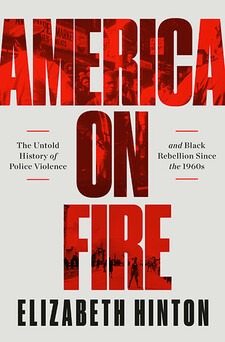
Local protests that began in Minneapolis in response to the murder of George Floyd in 2020 soon grew into a nationwide movement calling for the end of police brutality and systemic racism. In order to fully grasp the antiracist marches and rallies that took place across the country, Professor Elizabeth K. Hinton writes in her book America on Fire: The Untold History of Police Violence and Black Rebellion Since the 1960s, one must look to their precursors in the 20th century, when Black rebellion in the U.S. — often mislabeled as “riots” — emerged as a powerful response to racism, poverty, and exclusion. In the book, Hinton corrects the notion of so-called urban rioting as part of a disease that could only be cured by more police. Instead, Hinton urges that urban unrest be understood as rebellions “against a broader system that had entrenched unequal conditions and anti-Black violence over generations.”
Professor Paul W. Kahn, Testimony
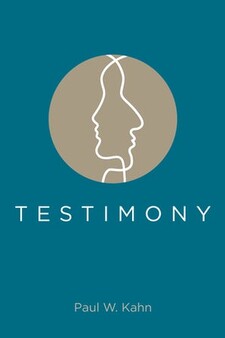
Testimony is the newest book from Professor Paul W. Kahn ’80. He pursues the themes that have been at the core of his work on law and politics: sacrifice, love, memory, and faith. Testimony, however, is no ordinary work of academic inquiry. It is a philosophical memoir of the last five years of his mother’s life. Testimony opens, “On my mother’s seventy-fifth birthday, she began to confess. By her eightieth birthday, she was dead. In those five years, my parents’ quiet life in retirement became the scene of a battle of mythic proportions. Love and hatred, sex and possession, memory and truth, life and death were all at issue.”
Professor Samuel Moyn, Humane: How the United States Abandoned Peace and Reinvented War

Humane: How the United States Abandoned Peace and Reinvented War is the story of how America went off to fight and never came back. Professor Samuel Moyn explores a troubling but urgent question as he takes the reader on a journey through a century and a half of passionate debate about the ethics of using force: What if efforts to make war more ethical — to ban torture and limit civilian casualties — have only shored up the military enterprise and made it sturdier? As American wars have become more humane, they have also become endless. The book argues that this development might not represent progress at all.
Professor Claire Priest, Credit Nation: Property Laws and Institutions in Early America
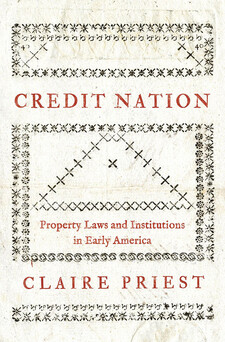
In her new book, Credit Nation: Property Laws and Institutions in Early America, Professor Claire Priest ’00 reveals how the drive to expand credit propelled the creation of new property laws and legal institutions in the colonial and founding eras of the United States. By treating land and slaves as mere commodities, and by creating streamlined institutions protecting creditors, the colonial governments and the British Parliament promoted the expansion of slavery and laid the foundations for 19th-century capitalism in America, according to the book. Priest’s original research on the legal foundations of property and credit brings a new perspective to the early American economy and the role of property in founding era republican ideology. The fact that the colonial American legal system, from its formation, prioritized access to both credit and property set early America apart from the rest of the world.
Professor Susan Rose-Ackerman, Democracy and Executive Power: Policymaking Accountability in the U.S., the U.K., Germany, and France
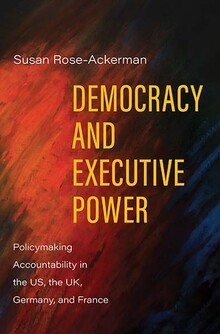
In Democracy and Executive Power: Policymaking Accountability in the U.S., the U.K., Germany, and France, Professor Susan Rose-Ackerman argues that public participation in executive policymaking is an imperative of modern democratic government. The challenge is to open up the rulemaking process to ordinary citizens without sacrificing bureaucratic expertise. This is no easy task, and her book explores different ways in which France, Germany, the U.K., and the U.S. are confronting this balancing test. France and the U.S. are presidential systems; Germany and the U.K. are parliamentary systems. These differences allow Rose-Ackerman to consider how these contrasting constitutional traditions help to explain the different approaches taken by these leading Western democracies.
Lecturer in Legal Research and Yale Law Library Associate Director Fred R. Shapiro, Editor, The New Yale Book of Quotations
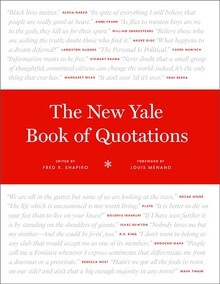
Fred R. Shapiro’s monumental new collection of quotations is not exclusively about the law, but being edited by a law librarian certainly shaped how the 1,136-page book came together. “My work at Yale Law School is very much reflected in this book,” said Shapiro. “Lawyers use words to persuade, to justify, and to govern.” Shapiro edited the first edition of the book in 2006 with the ambitious dual goal of creating the most comprehensive compilation of its kind and using path-breaking research methods to find the true origins of these words. Since the first book, Shapiro writes, improved research tools have made it possible to better determine the origin and frequency of quotations. For this new edition, Shapiro has updated many quotations from the original book with more accurate wording and attribution. Notably, the book reveals that women originated many familiar words that have instead been credited to prominent men.
WATCH: Fred R. Shapiro of the Lillian Goldman Law Library discusses The New Yale Book of Quotations


